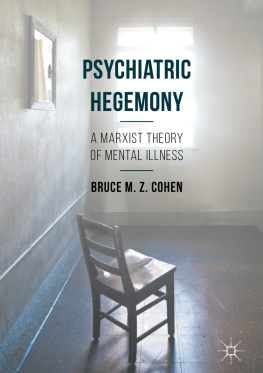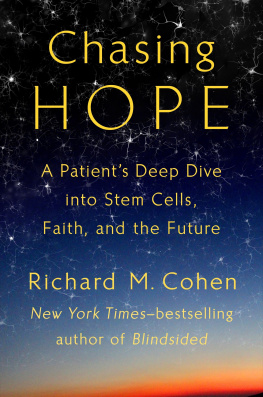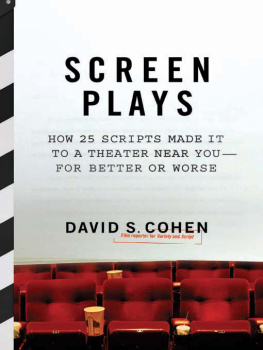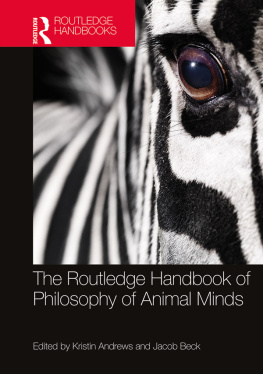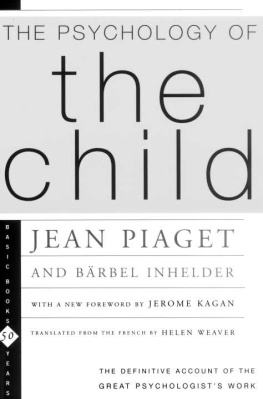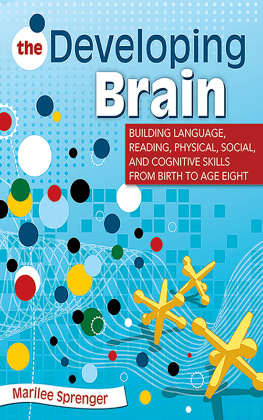How we learn to think, perceive, remember, talk, reason and learn is a central topic in psychology and one that sees constant new research. In this very readable book, David Cohen discusses the latest studies and covers all the controversies that have dogged the subject for nearly 150 years. He examines the work of the greats like Piaget, Freud and Vygotsky and shows how the issues that have intrigued psychol-ogists relate to any child growing up today.
This book is for everyone who lives with, works with or studies children. David Cohen examines the fundamental issues of how chil-dren learn to read and write, of how their intellectual abilities are measured and the development of their morality. He examines child crime and looks at how modern media affect the way the childs mind develops.
How the Child's Mind Develops
Second edition
David Cohen

First published 2013
by Routledge
27 Church Road, Hove, East Sussex, BN3 2FA
Simultaneously published in the USA and Canada
by Routledge
711 Third Avenue, New York, NY 10017
Routledge is an imprint of the Taylor & Francis Group, an informa business
2013 David Cohen
The right of David Cohen to be identified as author of this work has been asserted by him in accordance with sections 77 and 78 of the Copyright, Designs and Patents Act 1988.
All rights reserved. No part of this book may be reprinted or reproduced or utilised in any form or by any electronic, mechanical, or other means, now known or hereafter invented, including photocopying and recording, or in any information storage or retrieval system, without permission in writing from the publishers.
Trademark Notice : Product or corporate names may be trademarks or registered trademarks, and are used only for identification and explanation without intent to infringe.
British Library Cataloguing in Publication Data
A catalogue record for this book is available from the British Library
Library of Congress Cataloging-in-Publication Data
A catalog record for this book has been requested
ISBN: 9780415677653 (hbk)
ISBN: 9780415677660 (pbk)
ISBN: 9780203105733 (ebk)
Typeset in Times and Frutiger by
Keystroke, Station Road, Codsall, Wolverhampton
For Aaron, Casey, Daniel, Lani hoping their minds will bloom
Illustrations
Introduction
Most psychologists, when they think of thinking, speak of cognition, thanks to the seventeenth-century French philosopher Ren Descartes (15961650). Contemplating his wood-burning stove, Descartes came up with one of the sharpest slogans of all time (1634/1999):
Cogito, ergo sum.
Latin for: I think, therefore I am.
Cogito hence cognition, cognitive, cogitate all words that refer to thinking or thought.
Elegant as Descartes formula was, it makes just as much sense if you run it backwards:
I am, therefore I think.
Human beings cannot help thinking. You may be thinking rubbish, you may be thinking about nothing more than whether Lady Gaga really needed to have a dress made out of meat, but, even so, your brain isnt totally empty.
No one is truly an airhead unless theyre brain-dead.
I dont think of myself as a thinking sort of person. Quite. But youre still thinking. Of something. If you werent, you wouldnt just be brain- dead but clinically, comprehensively, in the ground 6 feet under, dead or in a coma.
I am, therefore I think.
The following exercise may help convince sceptics
For the next 3 minutes, jot down all the thoughts that come into your mind. What you are doing is introspecting. You could call this free association because therell be some links or associations between your various thoughts.
If you had no thoughts at all, worry.
Our minds, when were awake, are nearly always busy. Thoughts flow along. William James, one of the great nineteenth-century psychologists and founder of the first psychology lab in the United States, compared consciousness to a river and coined the famous phrase stream of consciousness. William James was the brother of the great novelist Henry James.
To empty your mind, you have to meditate. This is so alien to our normal manner of thinking that individuals who want to meditate have to learn special exercises. Many religions, like Buddhism, offer rigorous training in meditation.
So try a second exercise and this one is much harder.
Imagine youre a baby
Put yourself inside the mind of a baby, an 8-month-old toddler who is crawling around his playpen. What do objects look like if youre observing them from a different height? How can you think of objects when you have no words for them because you havent yet learned how to speak?
Youve now grown up very fast and are 3 years old. Youre going to kindergarten and youre pretending to be an astronaut or a doctor. Trying to imagine this is easier because you can use language, but how do the world, your parents, other children look?
By comparison, trying to think like a 9-year-old or a teenager is much easier. Most of us have reasonable memories of significant events that have taken place after were 8 or 9 years old, but memories of earlier events tend to be more fragmented and random. My first memory is of flying from Israel to Amsterdam (going in a plane was a major event) and being offered chicken to eat on the plane. I was 3, which is typical. A study in 1896 showed that most peoples first memories were of an isolated event when they were 3 (Binet and Henri 1896). Hardly anyone claims to remember anything from when they were a baby.
In films or ads, when babies act sophisticated and speak, its funny because its impossible and outlandish. Babies cant speak and cant possibly have the kind of thoughts they express in some TV ads or in The Simpsons. Were projecting an adult mind onto that of a baby or a toddler.
How do we get from helpless baby to knowing, ironic teenager? In this book I look at different theories and aspects of cognitive development. Psychologists have tried to understand the stages by which childrens thinking develops; some have also tried to understand the fundamental causes of development and have argued over whether our intelligence is a matter of nature or nurture.
Is cognition a matter of learning and environment or a matter of heredity? Is your fate sealed by your DNA and your genes before youre born or does everything depend on how youre brought up and the environment you develop in?



